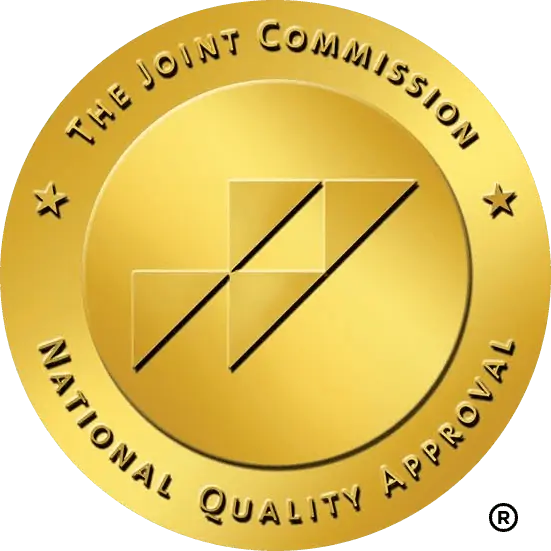This article discusses suicide. If you are having thoughts of suicide, call or text 988 to reach the Suicide and Crisis Lifeline or go to SpeakingOfSuicide.com/resources for a list of additional resources.
The movie The Son had its world premiere last year at the Venice International Film Festival. The nationwide release in the US followed in January and the film, directed by Florian Zeller is currently streaming on Netflix.
The story focuses on Nicholas Miller (Zen McGrath), a 17-year-old high school student with severe depression, and his divorced parents Peter (Hugh Jackman) and Kate (Laura Dern).
Peter Miller is married to his second wife, Beth (Vanessa Kirby), with whom he is raising their newborn baby. At the beginning of the movie, Kate unexpectedly shows up at Peter’s house because she is worried that Nicholas (who lives with her) is depressed and has dropped out of school.
Peter agrees to house him and tries to bond with Nicholas who appears to be deeply wounded by the divorce of his parents. He continues to skip school and eventually attempts suicide after which he is placed in an in-patient treatment facility.
“Teen depression is a serious mental health problem that causes a persistent feeling of sadness and loss of interest in activities,” we read on the website of the Mayo Clinic. “It affects how your teenager thinks, feels, and behaves, and it can cause emotional, functional, and physical problems… Teen depression isn’t a weakness or something that can be overcome with willpower—it can have serious consequences and requires long-term treatment. For most teens, depression symptoms ease with treatment such as medication and psychological counseling.”
The film illustrates the possibly serious consequences of underestimating severe depression. In the crucial scene of the movie, Nicholas pleads with his parents to take him home to which they agree despite the vehement pleas of the attending psychiatrist to give Nicholas more time in treatment. Peter and Kate bring Nicholas home after feeling sympathetic to his emotional pleas that he “regrets” his suicide attempt and will not do it again. Once back home, however, Nicholas kills himself with a rifle his father has stored in the house—leaving his parents devastated.
Peter and Kate misread or overlooked several symptoms of depression in Nicholas. He was feeling hopeless or empty most of the time, presented with irritable or annoyed moods, lost interest in teenage activities or hanging out with friends, engaged in self-harm (cutting), and had trouble concentrating and making decisions.
At one point he told his mother that he was “in pain all the time,” and his father became aware that he was cutting himself to “feel relief.” Together with the failed suicide attempt, these are clear indicators that Nicholas was not just experiencing the normal ups and downs of a teenager but needed closely monitored psychiatric supervision and treatment.
It’s not necessarily always that clear-cut. “Often, it’s really difficult to discern whether there is a real mental health issue going on or whether it’s just adolescence,” says Turning Winds’ clinical director Jared Sartell, LCSW. “It takes a nuanced approach by somebody with a lot of experience and a kind of feel for things to tell the difference.”
Unfortunately, the movie scenario of The Son is far from uncommon in the United States. The recent Youth Risk Behavior Survey published by the US Centers for Disease Control and Prevention (CDC) described our country’s pediatric mental health crisis:
“As we saw in the 10 years prior to the COVID-19 pandemic, mental health among students overall continues to worsen, with more than 40 percent of high school students feeling so sad or hopeless that they could not engage in their regular activities for at least two weeks during the previous year—a possible indication of the experience of depressive symptoms. We also saw significant increases in the percentage of youth who seriously considered suicide, made a suicide plan, and attempted suicide.”
Parents, teachers, and mentors need to be aware of this crisis and monitor children accordingly. Family engagement can play a vital role in the recovery of individuals with mental health and substance use issues. Just like the Millers in the movie, families often end up in turmoil.
“They are urgently trying to figure out what to do to help their child—before it’s too late,” says chief operations officer Carl Baisden. “Sending them to Turning Winds is an important step and the parent workshop we offer once a month provides families with important tools to achieve the best possible outcome for their teens.”
Turning Winds offers this two-day workshop as part of a wide range of services. The therapeutic approaches at Turning Winds include character education, leadership development, health, wellness of body and mind, therapeutic and academic success, and outdoor therapeutic experiential education.
“Parents usually have an intense emotional attachment to their kids, and sometimes that causes them to parent too much from an emotional standpoint instead of a logical or intellectual one,” says Baisden. “The workshop raises parental awareness of this dilemma. We give them tools to approach their children on a logical basis and help them to better detach from the behavior of their kids to enable them to move forward and take care of their kids at the same time.”
Our treatment program in Troy, Montana helps address the historic rates of dysphoria and mental health disorders among young people in America. Turning Winds represents a critical resource for adolescents, families, and their communities. The program’s therapeutic work and its ability to help individuals become healthier, happier people, family members, and community members yield far-reaching personal and societal benefits.
Our mission is to rescue teens from crisis situations, renew their belief in their own potential, reunite them with their families, and launch them on a sustainable path to success. If your teenage daughter is struggling with mental health issues, speak with our admissions specialists today at (800) 845-1380 or email us at [email protected].









